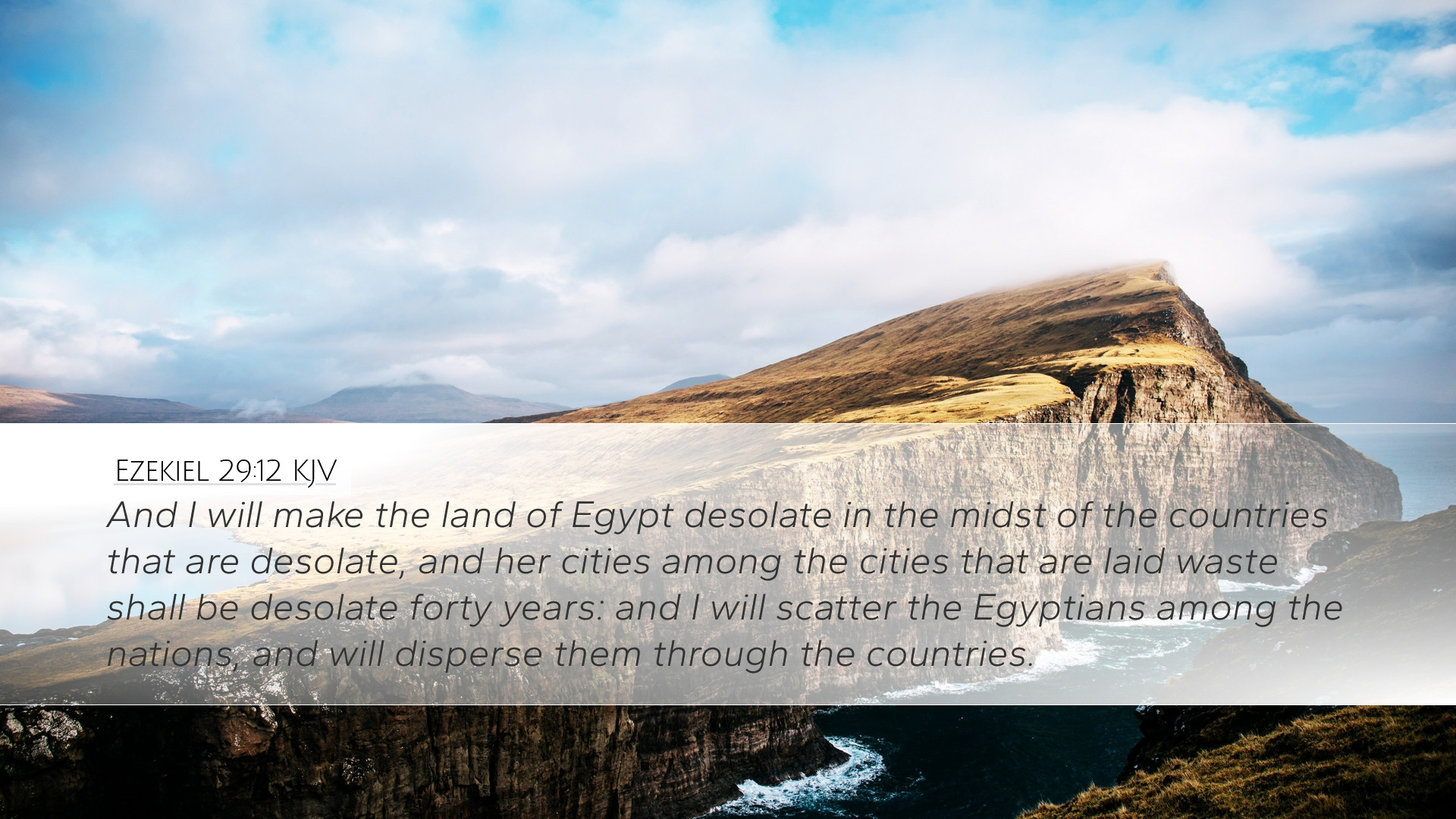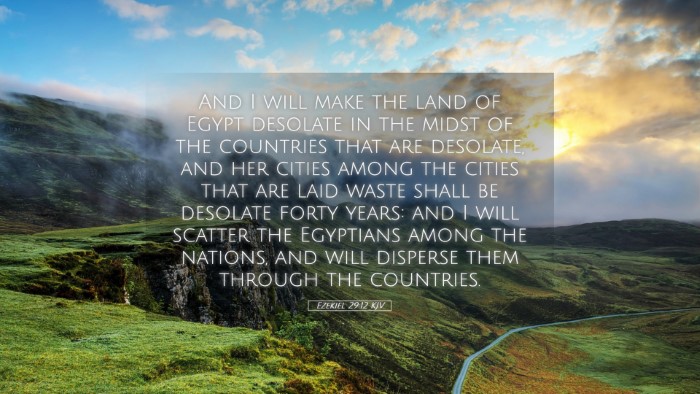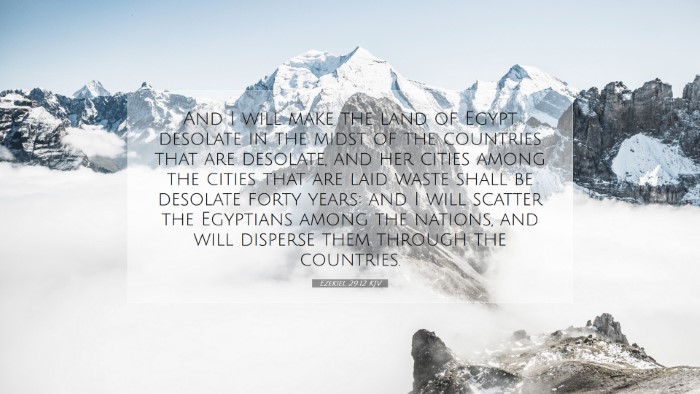Ezekiel 29:12 Commentary
Ezekiel 29:12 states, "And I will make the land of Egypt desolate in the midst of the countries that are desolate, and her cities among the cities that are laid waste shall be desolate forty years: and I will scatter the Egyptians among the nations, and will disperse them through the countries."
Contextual Overview
The prophecy given in Ezekiel 29:12 occurs during a time when Egypt sought to re-establish its influence after the fall of Jerusalem in 586 BC. The city was seen as a refuge for Israelite exiles. Ezekiel, writing from Babylon, delivered this oracle as part of God’s judgment against Egypt for its arrogance and idolatry.
Insights from Public Domain Commentaries
Matthew Henry's Commentary
Henry emphasizes that this verse serves as a divine pronouncement against Egypt, symbolizing how God will bring desolation upon those who oppose Him. He notes the historical significance of Egypt, once a power, now reduced to ruin. Henry points out that Egypt’s devastation is not arbitrary but is a result of its persistent rebellion against God's commandments.
Key Insights:
- God's sovereignty over nations is highlighted; He raises them up and brings them low.
- God declares a period of desolation lasting forty years, which is significant both as a biblical number and in its implication of judgment.
- The scattering of Egyptians among nations serves a dual purpose: judgment and the potential for repentance.
Albert Barnes' Commentary
Barnes offers a detailed analysis of the geographical and spiritual implications of this passage. He notes the specific mention of “forty years,” linking it to other biblical instances of similar durations, such as the Israelites’ wandering in the desert. This serves as a reminder of God’s justice and mercy.
Key Insights:
- He connects the desolation of Egypt to its historical pride and false worship, indicating that such pride leads to ruin.
- Barnes points out that the prophecy illustrates not only national calamity but also individual spiritual consequences.
- The scattering mentioned signifies loss of identity and the reality of being a displaced people, much like Israel experienced.
Adam Clarke's Commentary
Clarke elaborates on the symbolism of desolation and the grave consequences of Egypt's political ambitions against Israel. He interprets the desolation of cities as both a literal and figurative expression of God’s judgment. Clarke posits that the fortieth year signifies a completion and a time of cleansing for Egypt.
Key Insights:
- Clarke emphasizes the spiritual implications of desolation—how it reflects a state of separation from God.
- He discusses God’s long-suffering, noting that this judgment comes not without warning and opportunity for repentance.
- The dispersion of the Egyptians exemplifies the loss of God’s presence and favor that comes as a consequence of persistent apostasy.
Theological Implications
Ezekiel 29:12 presents a clear picture of divine sovereignty and justice. It teaches that nations, like individuals, are accountable to God. The desolation signifies not merely divine punishment but a call to repentance. Understanding the implications of judgment can encourage believers to seek humility and dependence on God.
Lessons for Modern Application
This passage serves as a sobering reminder for contemporary believers and leaders:
- Humility before God: Just as Egypt was reduced to desolation, we are reminded that pride leads to downfall. Nations must seek the Lord sincerely.
- Importance of Repentance: God’s judgments are not without potential for restoration. The call to repent remains relevant today.
- Recognizing Divine Purpose: Even in judgment, God’s purpose transcends immediate circumstances, offering hope beyond desolation.
Conclusion
Ezekiel 29:12 is a profound declaration of God’s authority over nations and individuals alike. Through the insights offered by Matthew Henry, Albert Barnes, and Adam Clarke, we encounter a multifaceted interpretation of this verse that resonates deeply with contemporary theological reflection. Understanding its historic and spiritual context invites us into a richer comprehension of God’s character and His dealings with humanity.


